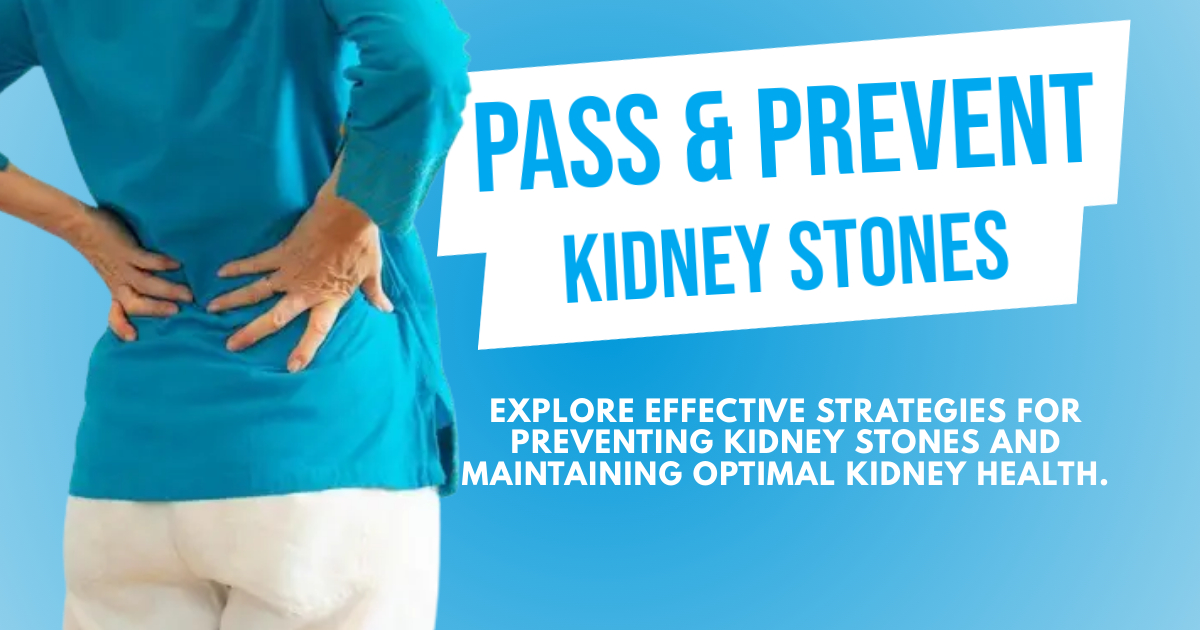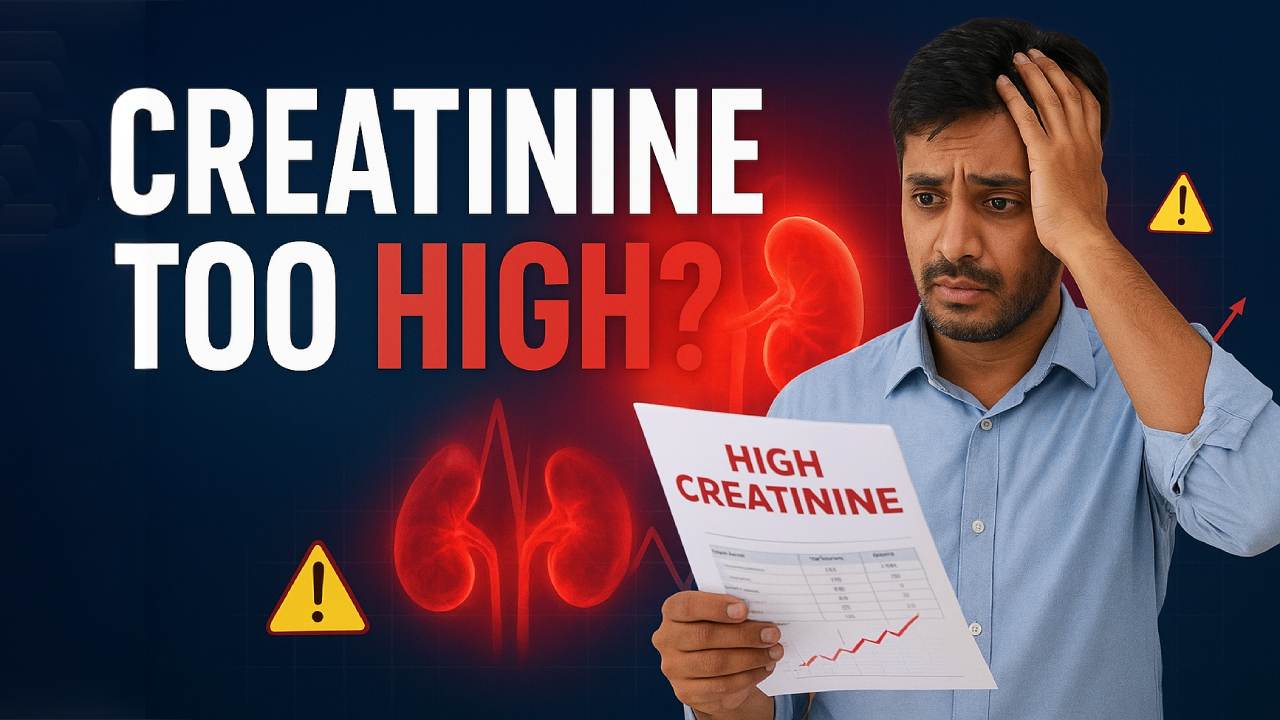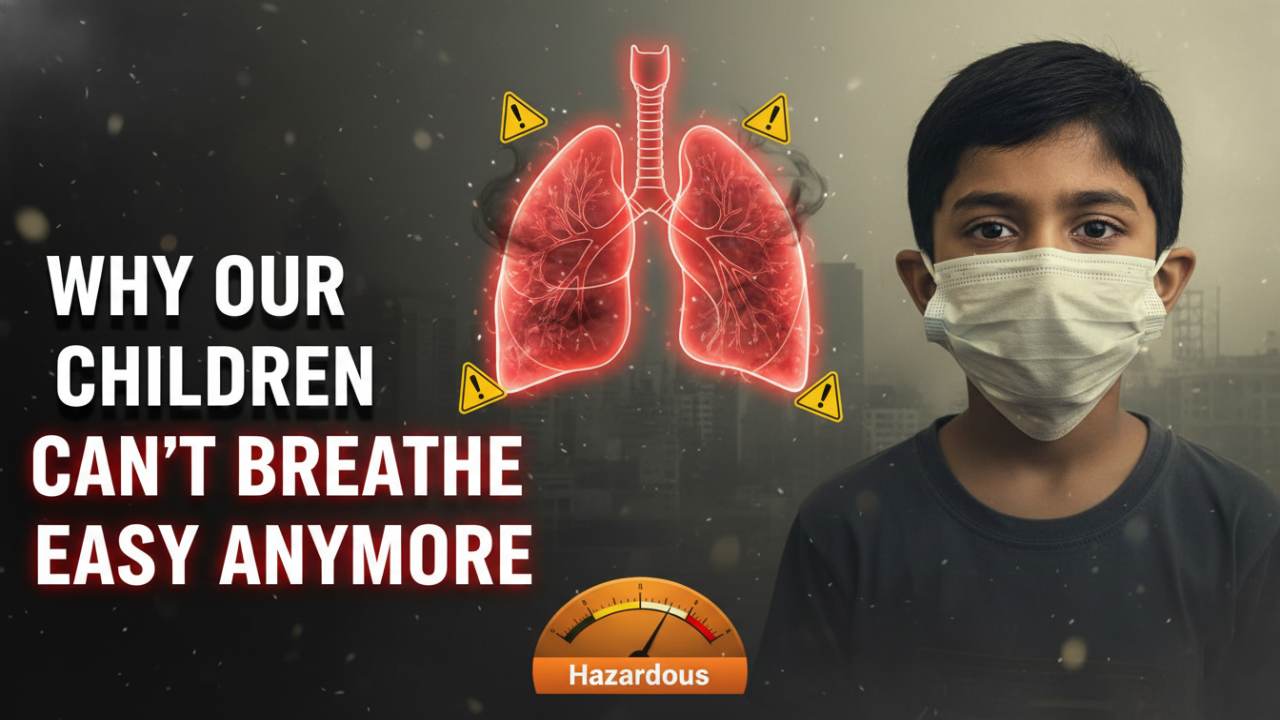Learn How to Pass Kidney Stones and Prevent Future Ones
Verified By Dr. Prasad Vijay Dandekar | 27-Mar-2024
Kidney stones are a common and painful condition that can impact anyone. They can be detrimental to kidney health, impair kidney function and exacerbate other health issues such as diabetes and high blood pressure. However, by making some simple lifestyle changes, you can significantly reduce your risk of developing kidney stones. In case you have a history of kidney stones or are experiencing symptoms, you may consult a top nephrologist nearby. In this blog, we will explore effective strategies for preventing renal stones and maintaining optimal kidney health.
Table of Content
Kidneys are extremely vital organs responsible for keeping your urinary system in order. They remove waste from the blood to make urine. When there is too much waste in the blood and the body is not producing enough urine, crystals begin to form in the kidneys. Renal stones are hard deposits of minerals and salts that can develop anywhere along your urinary tract, from the kidneys to the bladder.
Not all renal stones are made of the same crystals. The different types of renal stones include-
- Calcium stones: Calcium stones are the most common type of kidney stones. These stones form when you are not getting enough fluids or calcium.
- Uric acid stones: Uric acid stones tend to run in families. High levels of a natural chemical called purine (found in meat and shellfish) can cause these stones. These stones can occur in people with gout, diabetes, and obesity.
- Struvite stones: Struvite stones are mostly found in people with urinary tract infections.
- Cystine stones: Cystine stones arise from a rare condition called cystinuria that is passed down in families. This lifelong condition can be managed but not completely cured.
It is estimated that one in ten people have a renal stone at some point in their lives. Kidney stones most likely occur in people between the ages of 20 and 50. According to reports, men are more likely to develop renal calculi than women.
Common risk factors include-
- History of renal stones
- Family history
- Dehydration
- Obesity
- Polycystic kidney disease
- Inflammatory bowel disease
- A diet with high levels of protein, glucose or salt
- Gastric bypass surgery
A kidney stone will not cause symptoms until it moves around in the kidneys or passes into one of the ureters. If the renal stone becomes lodged in the ureter, it may block the flow of urine and cause the kidneys to swell and the ureter to spasm. The first signs of renal stones are severe, sharp pain in the side, back and lower abdomen as well as pain or burning sensation while urinating.
Other common kidney stone symptoms include-
If not treated, renal stones can put you at risk for acute kidney injury, frequent urinary tract infection and chronic kidney disease.
Kidney stones can be incredibly painful and can significantly interfere with one's everyday activities. Fortunately, there are several steps you can take to reduce your risk of developing them.
- Stay Hydrated: Drinking plenty of water throughout the day can help prevent the formation of renal stones by keeping urine diluted.
- Eat a Balanced Diet: A diet rich in fruits, vegetables, and whole grains, and low in sodium and animal protein, can help prevent renal calculi.
- Limit Oxalate-rich Foods: Foods high in oxalate, such as spinach, sweet potatoes, chocolates and some nuts should be consumed in moderation.
- Limit Sodium Intake: High sodium levels can increase the amount of calcium in your urine, increasing the risk of kidney stones.
- Limit Animal Protein: Too much animal protein in the diet can lead to higher levels of uric acid in the urine and contribute to renal stone formation.
- Maintain a Healthy Weight: Being overweight can increase the risk of renal stones, so maintaining a healthy weight is important.
- Monitor Calcium Intake: While calcium is essential for bone health, consuming too much calcium can increase the risk of renal stones. Aim for the recommended daily intake of calcium for your age and gender.
- Limit Vitamin C Supplements: Large doses of vitamin C can increase the risk of kidney stones in some people, so it's best to avoid high-dose supplements.
Renal stones can be a painful and debilitating condition, but by following these prevention tips, you can significantly reduce your risk. In case you are searching for the best kidney stones treatment hospital in Noida, immediately contact Kailash Hospital. Our urology department offers comprehensive services for almost all types of urinary tract disorders and diseases under one roof.
Our top nephrologist will help develop a plan to prevent renal calculi from forming and protect against long-term complications. We have state-of-the-art equipment and laboratories for diagnosing various urinary tract disorders.
For more information, kindly consult our nephrologist.



 +91-9711918451
+91-9711918451
 international.marketing@kailashhealthcare.com
international.marketing@kailashhealthcare.com







